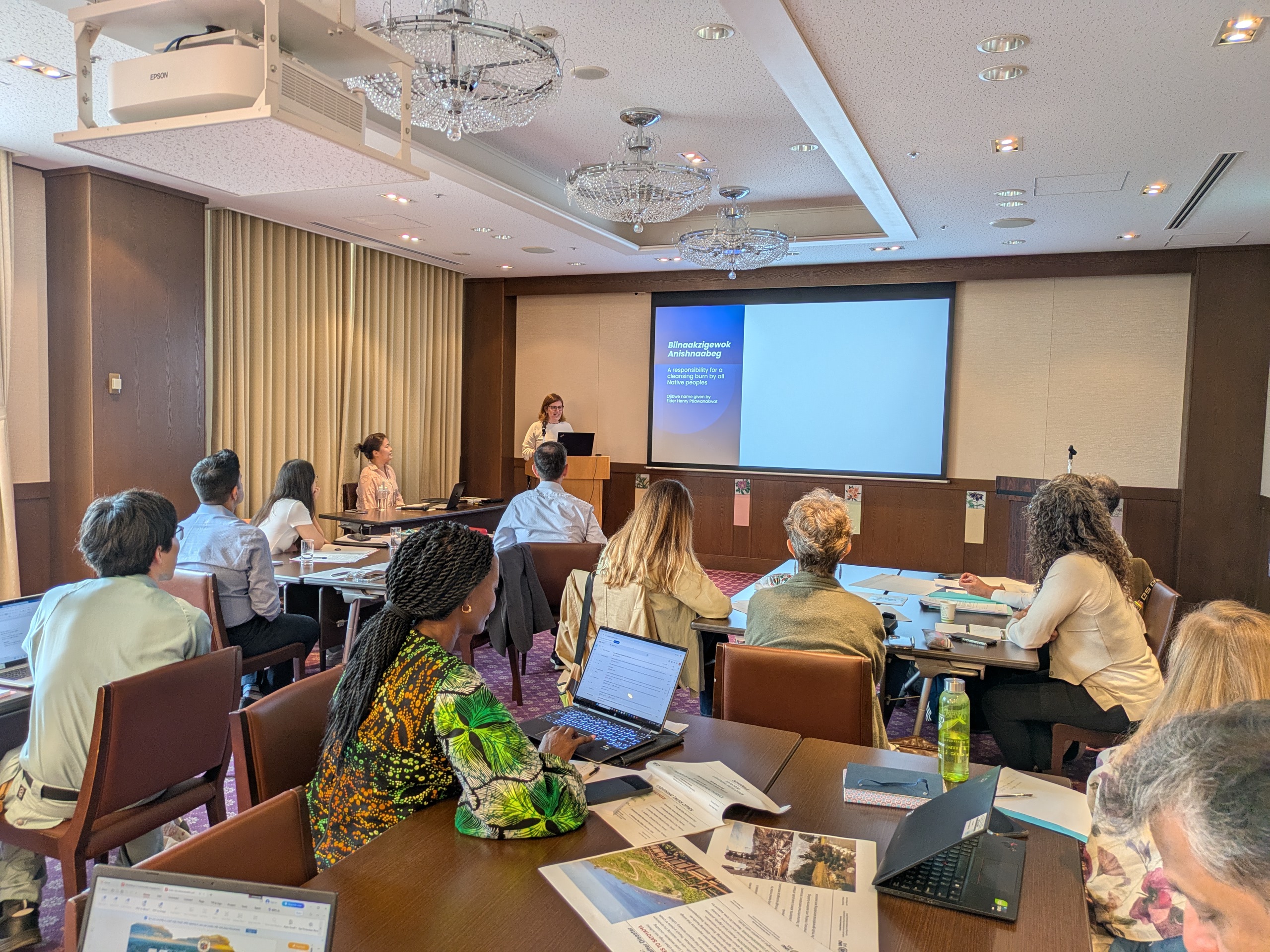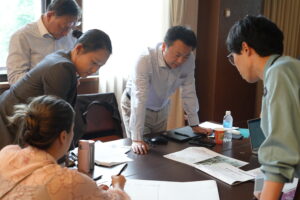On 20 May 2025, two international workshops on urban nature restoration were held at the Shiinoki Cultural Complex in Kanazawa, co-organized by UNU-IAS OUIK and Kanazawa City. Held as a lead-up to the International Symposium on Urban Nature Ecosystem Restoration, the event welcomed around 20 representatives from cities such as Kisumu (Kenya), Iloilo (Philippines), Kochi (India), Curitiba (Brazil), Istanbul (Türkiye), Paris (France), Toronto (Canada), Seattle (USA), Yangzhou (China), and Kanazawa (Japan), along with partners like ICLEI Africa and UNEP.
The morning session, titled ”Community Engagement in Urban Nature Restoration”, focused on sharing successful approaches to involving citizens in restoring urban ecosystems. Kanazawa presented its long-running initiative to preserve firefly habitat, including an annual viewing event since 1987. Kisumu showcased its community-led dialogues, tree planting, and waste management activities. Istanbul shared ecosystem restoration efforts through sports and citizen science to boost participation. Seattle emphasized youth engagement through ecological projects, environmental education, and job creation despite limited political interest.
In the group discussions that followed, participants identified several key challenges to community engagement, including limited funding, insufficient public and governmental awareness of climate change and ecosystem restoration, and difficulties in engaging diverse age groups. At the same time, they noted growing public interest in biodiversity, emerging opportunities for conservation-related employment, and the potential to broaden community involvement as encouraging trends.
The afternoon session titled “Urban Nature Utilization for Cultural and Sustainable Tourism,” focused on strategies to align tourism development with environmental conservation. Kanazawa presented strategies for managing tourist influx and protecting historic gardens. Yangzhou introduced the use of Gross Ecosystem Product (GEP) to evaluate and monitor ecosystem services to ensure sustainable tourism. Kochi shared its efforts to revitalize waterways and canals, including restoring traditional routes and promoting the electric Water Metro to reduce urban flooding.
Following the presentations, participants joined group discussions on key themes such as access, cultural identity, biodiversity, and environmental education. They brainstormed strategies like pre-registration systems to manage post-COVID tourism, promoting ecotourism, and local stories to support sustainable tourism. Some groups presented innovative approaches focused on post-earthquake recovery through community spaces and play areas that foster social cohesion, while others highlighted the importance of ecological restoration that integrates local memories and traditional gardens. The need for protected zones and smart park design was also underscored.
The workshops concluded with a guided visit to Kenrokuen Garden, providing participants with a tangible example of how cultural heritage and ecological restoration can be successfully integrated in an urban context.
Overall, the workshops facilitated mutual learning, deepened connections through shared experiences, and provided a key platform for advancing dialogue ahead of the International Symposium on 22 May.







